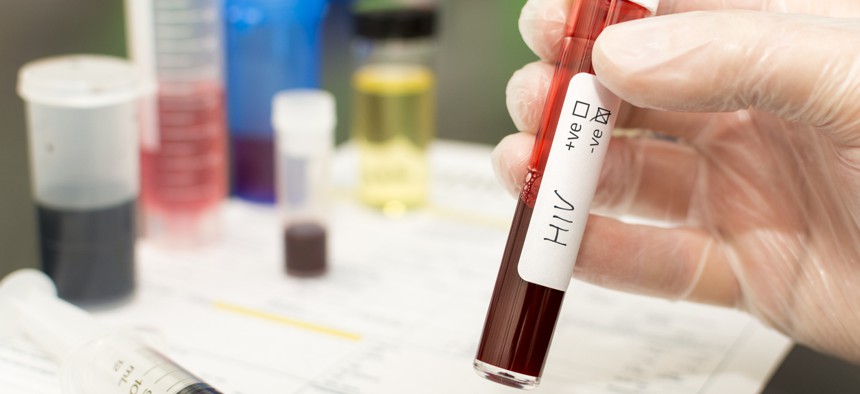Two States Have Decriminalized HIV Transmission, Leaving Eight With Active Laws

istock.com/Thomas Faull
Illinois became the second state to repeal a decades-old statute that allowed HIV-positive residents to be charged with a felony for failing to disclose their status before having unprotected sex.
Illinois last week repealed a decades-old statute that left HIV-positive residents open to felony charges for failing to inform partners of their status prior to unprotected sex, becoming the second state to formally decriminalize the transmission of the disease.
“In our continued efforts to shape a safer and more inclusive Illinois, my administration is on a mission to lift up and empower those who too often have been overlooked and forgotten,” Gov. J.B. Pritzker said in a statement. “Today, the state of Illinois is taking another step to advance that mission.”
The legislation, passed by large majorities in both the state House and Senate, repealed a 1989 statute that prohibited people with HIV and AIDS from having unprotected sex without first disclosing their status; donating blood, organs or bodily fluid, and sharing “nonsterile intravenous or intramuscular drug paraphernalia.” Violators could be charged with a felony, punishable by up to seven years in prison and a $25,000 fine—even if they did not transmit HIV. The law had been revised once, in 2012, to require “specific intent to commit the offense” of criminal transmission.
Illinois was one of 37 states that criminalized the behavior of HIV-positive residents, according to the Centers for Disease Control and Prevention, despite research that indicates the laws do little to reduce rates of infection. Many were passed when little was known about HIV, including how it is transmitted and how it should be treated, and most existing laws “do not reflect current scientific and medical evidence,” the federal agency said on its website.
In Illinois, advocates said, the law did little to help public health, instead actively discouraging testing and contributing to social stigma surrounding people living with HIV and AIDS. Prosecutions under the law there disproportionately affected Black men, who comprised more than two-thirds of the people charged; across gender lines, Black people accounted for 75% of offenders, according to an analysis of court data by The Circuit, an investigative journalism project from the Better Government Association and Injustice Watch.
"The criminalization of HIV has harmed communities in our home state for decades,” the Illinois HIV Action Alliance said in a statement. “It has done nothing other than spread fear and stigma, and it discouraged people from getting tested or knowing their status. This legislation was passed to bring an end to these harms and modernize how we approach this public health issue.”
Since 2014, at least five states have modernized their laws to better align with current scientific evidence, according to the CDC. Changes include requiring “intent to transmit” (California and Iowa), eliminating felony penalties for HIV-positive sex workers (Colorado), moving HIV prevention issues from the criminal code to disease control regulations (North Carolina), and providing viral suppression medication to decrease the likelihood of transmission (Michigan).
Eight other states—Arkansas, Florida, Indiana, Louisiana, Ohio, South Dakota, Tennessee and Utah—enforce laws that criminalize HIV transmission. Only one other state—Texas, in 1994—repealed its law, though people there are still prosecuted for failing to disclose their HIV-positive status, according to the Center for HIV Law & Policy.
Kate Elizabeth Queram is a senior reporter for Route Fifty and is based in Washington, D.C.
NEXT STORY: A $5B Turning Point for Reducing Homelessness





